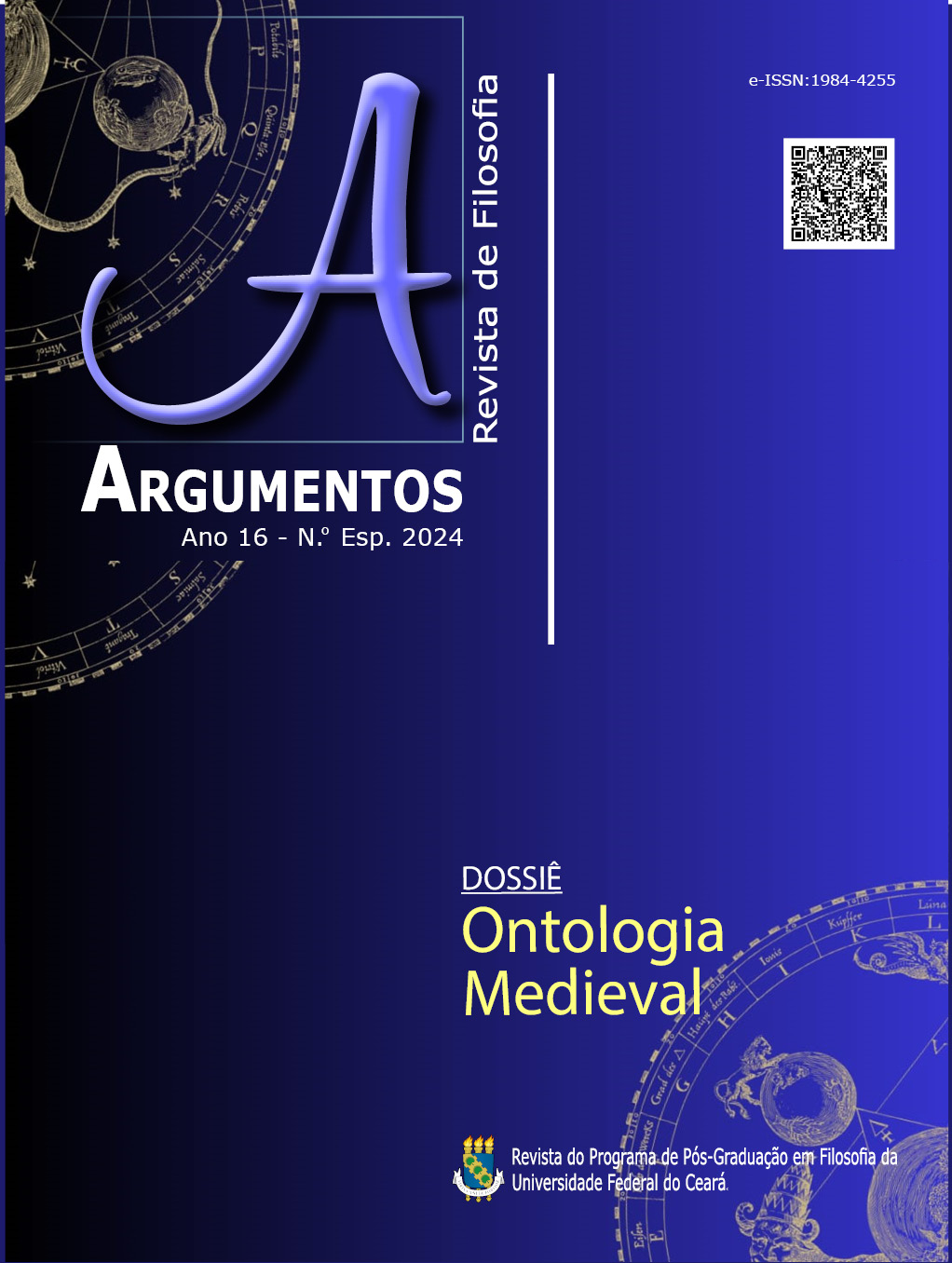Hannah Arendt e o poder redentor da narrativa
Palavras-chave:
Narração. Storyteller. Hannah ArendtReferências
ARENDT, H. Hannah Arendt KarI-Jaspers: Briefwechsel. München, 1985.
ARENDT, H. Men in Dark Times. New York: Harcourt Brace, 1968.
ARENDT, H. Personal Responsibility Under Dictatorship. The Listener, n. 6, 1964.
ARENDT, H. The Human Condition. Chicago: University of Chicago Press,1973.
ARENDT, H. The Life of the Mind. Vol. 1. Thinking. New York: Harcourt Brace, 1978.
ARENDT, H. The Life of the Mind. Vol. 2. Willing. New York: Harcourt Brace, 1978.
ARENDT, H. The Origins of Totalitarianism. 3. ed. New York: Harcourt Brace, 1979.
ARENDT, H. “[The Origins of Totalitarianism]: A Reply”. The Review of Politics, v. 15, n. 1, 1953, p. 76–84.
ARENDT, H. Walter Benjamin. In: Men in Dark Times. New York: Harcourt Brace, 1968.
BENHABIB, S. “Judgment and the Moral Foundations of Politics in Arendt’s Thought”. Political Theory, v. 16, n. 1, 1988, p. 29-51.
BERNSTEIN, R. The Restructuring of Social and Political Theory. Philadelphia: University of Pennsylvania Press; Harcourt Brace, 1976.
BUCK-MORSS, S. The origin of negative dialectics: Theodor W. Adorno, Walter Benjamin and the Frankfurt Institute. Hassocks: Harvester Press, 1977.
CRICK, B. “On Rereading ‘The Origins of Totalitarianism’”. Social Research, v. 44, n. 1, 1977, p. 106-26.
LUBAN, D. “Explaining Dark Times: Hannah Arendt’s Theory of Theory”. Social Research, v. 50, n. 1, 1983, p. 215-248.
D’ENTREVES, M. P. The political philosophy of Hannah Arendt: a reconstruction and critical evaluation. Boston: Boston University, 1989.
FUNKE, M. Totalitarisme: E. Studien-Reader zur Herrschaftsanalyse moderner Diktaturen, Düsseldorf, 1978.
HABERMAS, J. “Hannah Arendt’s Communications Concept of Power”. Social Research, v. 44, n. 1, 1977, p. 3-24.
HEGEL, G. W. F. The philosophy of right. Translated with notes by T. M. Knox. Oxford, 1973.
KATEB, G. Hannah Arendt: politics conscience and evil. New Jersey: Rowman & Allenheld, 1983.
LASCH, C. “Introduction”. Salmagundi, Special. H. Arendt issue, n. 60, 1983.
MERLEAU-PONTY, M. Les aventures de la dialectique. Paris: Gallimard, 1955.
MOMMSEN, H. „Vorwort“ in Eichmann in Jerusalem: Ein Bericht von der Banalität des Bösen. München, 1986.
MOMMSEN, H. “The Concept of Totalitarian Dictatorship versus the Comparative Theory of Fascism”. In: MENZE, E. A. (Ed.). Totalitarianism Reconsidered. Port Washington: Kennikat Press, 1981. p. 146-166.
PITKIN, H. F. Justice: on relating private and public. Political Theory, v. 9, n. 1, 1981, p. 327-352.
TOCQUEVILLE, A. Democracy in America. New York: Doubleday, 1969.
VOEGELIN, E. “The Origins of Totalitarianism”. The Review of Politics, v. 15, n. 1, 1953, p. 68-76.
YOUNG-BRUEHL, E. Hannah Arendt: for love of the world. New York: Yale University Press, 1982.
Downloads
Publicado
Edição
Seção
Licença
Copyright (c) 2024 Lucas Barreto Dias, Cecília Pereira da Costa, José Eronildo Gomes de Araújo Junior

Este trabalho está licenciado sob uma licença Creative Commons Attribution 4.0 International License.
Autores que publicam nesta revista concordam com os seguintes termos (SOBRE COPYRIGHT E POLÍTICA DE ACESSO LIVRE):
1. Autores mantém OS DIREITOS AUTORAIS concedidos à revista OU Direito de Primeira Publicação, com o trabalho simultaneamente licenciado à Atribuição de Licença Creative Commons (CC BY) que permite o compartilhamento dos trabalhos com reconhecimento de autoria e publicação inicial nesta revista.
2. Autores têm permissão para aceitar contratos, distribuição não-exclusiva da versão do trabalho publicada nesta revista (por exemplo: publicar no repositório institucional ou como um capítulo do livro), com reconhecimento de autoria e publicação inicial nesta revista.
3. Autores têm permissão e são estimulados a publicar e distribuir seu trabalho on-line (por exemplo: em repositórios institucionais ou em sua página pessoal) mesmo durante o processo editorial, haja visto que isso pode aumentar o impacto e citação do trabalho publicado.




.jpg)










._._3.png)
1.jpg)
._._._.png)
